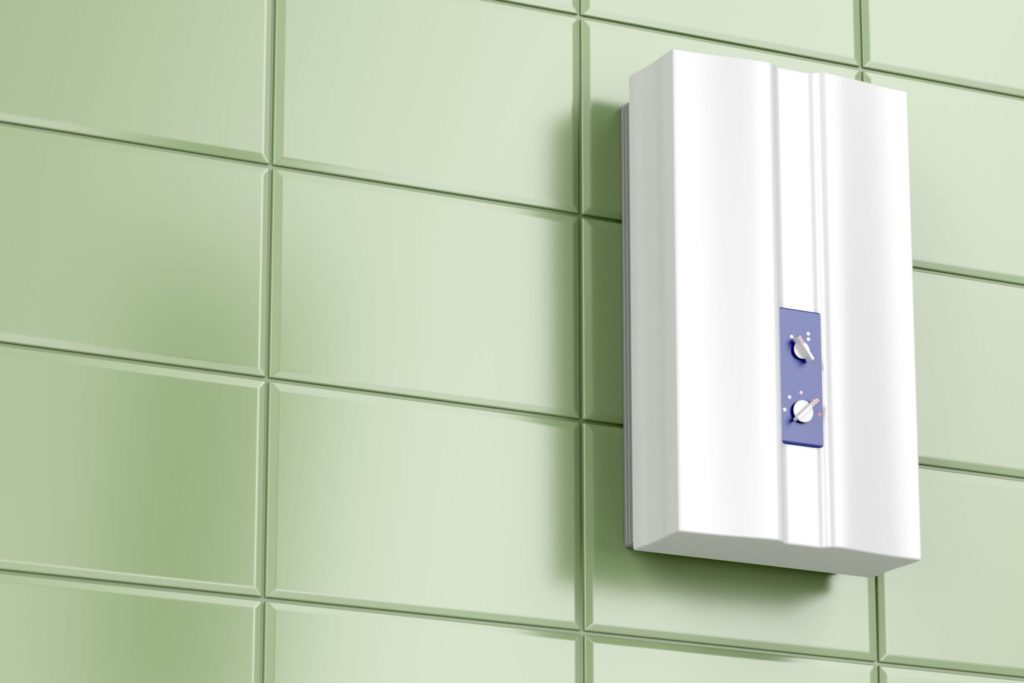In response to rising energy costs and worldwide sustainability efforts, more homeowners are exploring efficient solutions for daily needs. A significant trend towards tankless water heaters from traditional models has been observed. It is vital to comprehend the operation and installation of a tankless water heater for an informed home improvement decision. This article intends to impart an in-depth understanding of tankless water heaters, underscoring how their installation could transform your home living experience.
How Tankless Water Heaters Work
At the core of a tankless water heater’s functionality is the concept of on-demand heating, contrasting with traditional systems that perpetually warm a reserved volume of water. When a household’s hot water faucet is turned on, cold water is drawn into the heater through a specific pipe. Depending on the model, this incoming water is instantly heated by a gas burner or an electric element, providing an immediate hot water output.
This prompt mechanism eliminates the need for a sizeable storage tank and the associated energy wastage from persistently heated water. By heating water only upon demand, tankless water heaters bypass the energy inefficiency related to reheating water, commonly experienced in tank-based models. This strategy not only underscores the tankless water heater’s exemplary efficiency but also ensures an uninterrupted hot water supply, unlike tank systems which can deplete their reserves. The instant heating process guarantees a steady hot water stream for your home, proportionate to the demand without needless energy use.
Energy Efficiency
Tankless water heaters, unlike conventional models, represent a superior option for energy-saving residential heating systems. Traditional models constantly heat a significant amount of water in a reserve tank. In contrast, these innovative devices operate solely on an as-needed basis. This critical variation from the standard modus operandi successfully eliminates the prevalent problem of standby energy loss often observed in regular tank systems, carving a path for enhanced efficiency and diminished environmental footprint.
The U.S. Department of Energy has corroborated this notion, stating that in residences where daily hot water usage does not exceed 41 gallons, tankless heaters can provide a significant energy efficiency increase of 24% to 34%. The translation of this fact shows commitment to environmental sustainability while simultaneously enabling consumers to realize tangible savings on their monthly energy expenditures.
The ingenious design of these devices enables them to adapt seamlessly to alterations in water usage, so energy is only consumed when necessary. This unique characteristic strengthens their pivotal role in constructing a more energy-conscious household setting. They leverage the most recent advancements in heating technology with the objective of reducing wastage and amplifying efficiency, positioning tankless water heaters at the forefront of eco-friendly residential heating.
Cost Savings
Though tankless water heaters may initially seem costly, considering their excellent operational efficiency and consequent potential for decreasing monthly energy costs changes this perspective. They are designed for particular heating needs, thus eliminating needless energy consumption associated with constant large-scale water heating. This can lead to a noticeable drop in utility expenses, proving that a tankless water heater is a wise long-term investment.
Aside from reducing regular monthly costs, tankless systems are known for their durability and longevity, exceeding traditional tank-based alternatives. This sturdiness leads to fewer replacement needs and less frequent costly repairs, generating considerable savings over the unit’s lifespan.
Furthermore, the efficient energy usage of tankless water heaters could qualify homeowners for numerous federal and state incentives aimed at encouraging energy conservation. This not only provides immediate financial benefits but also decreases the initial investment. Coupled with consistent savings on energy costs, these incentives underscore the economic advantage of tankless water heaters for homeowners seeking to boost their home’s energy efficiency and lessen their environmental footprint.
The Importance of Professional Plumbing Services
Switching to a tankless water heater demands the expertise of a skilled plumbing service like the team at ACE Home Services for best performance and longevity. These professional have the requisite experience and tools to evaluate your home’s hot water needs, recommending a unit that suits your lifestyle and usage patterns.
The intricate procedure of setting up a tankless water heater extends beyond fundamental plumbing skills, necessitating an understanding of local building regulations, safe handling of gas or electrical connections, and the capacity to pinpoint and rectify potential complications. This complexity underscores the necessity to entrust this job to professionals from ACE, ensuring a safe and efficient setup.
Routine maintenance by an expert plumber can significantly enhance the lifespan of your tankless water heater, detecting minor problems before they escalate into costly fixes. ACE Home Services’ plumbers can also offer valuable advice on optimizing the system’s performance, guaranteeing you fully leverage your investment. Trusting professional plumbing services is vital when transitioning to this modern heating solution, ensuring a smooth transition and uninterrupted access to hot water.
Choosing the Right Tankless Water Heater
Determining the ideal tankless water heater for your home entails a detailed assessment of your unique needs. Key factors like the size of your home, the total quantity of water outlets, and your typical water consumption patterns all play a critical role in selecting the most appropriate heater kind and capacity.
Understanding the maximum water flow needed during peak periods, such as running a dishwasher while a shower is in use, is crucial to ensure your tankless system’s efficiency. This becomes vital when selecting between gas and electric models.
Gas-powered heaters generally offer better flow rates, making them preferable for larger residences. On the other hand, electric heaters may be more fitting for smaller homes or apartments with less hot water demand. However, considerations such as the local supply and pricing of natural gas or propane should also be factored into your choice.
Engaging a professional from ACE Home Services in the selection process can be greatly beneficial. A skilled plumber can conduct an exhaustive study of your home’s water heating requirements and account for factors like energy efficiency and future water usage variations. Their input will guarantee that the tankless water heater chosen aligns perfectly with your home’s needs, ensuring optimal performance and energy economy.
Common Concerns About Tankless Water Heaters
Switching to a tankless water heater often raises questions about initial cost, installation complexities, and ongoing maintenance. However, despite the upfront expense, significant energy savings and reduced monthly expenses make these units economically beneficial over time. Compared to traditional water heaters, tankless models have a longer lifespan, thereby justifying the initial cost by minimizing replacement frequency and maintenance expenses.
Worries regarding the installation process are valid, yet they can be effortlessly handled with expert help. The professional plumbers at ACE Home Services can navigate the complexities of the installation, ensuring that the system is properly set up from the start. This not only makes the installation process less daunting for homeowners but also assures the system’s effectiveness and durability.
Regular check-ups from a competent technician make maintenance uncomplicated. They can address potential problems before they escalate, thereby guaranteeing the unit’s best performance.
Understanding these factors can make the transition to a tankless water heater less daunting and showcase it as a viable and advantageous option for homeowners wanting to enhance their home’s energy efficiency and comfort.
The Bottom Line: Why a Tankless Water Heater is a Smart Choice
Choosing to install a tankless water heater presents a smart opportunity for homeowners seeking remarkable efficiency and significant long-term savings. These advanced heating systems are celebrated for their ability to provide on-demand hot water, which significantly lowers energy consumption. As they function on an as-needed basis, unlike traditional water heaters that constantly heat and exhaust energy, these heaters offer substantial operational savings reflected in lower monthly utility bills, symbolizing their excellent efficiency.
Another advantage of tankless water heaters is their long-lasting durability. This results in fewer replacements and minimal maintenance costs throughout their lifespan. Coupled with the possibility of qualifying for energy-conservation incentives, the financial benefits of these systems are magnified. They promise a steady hot water supply, without the constraints of a storage tank, providing unparalleled comfort and convenience.
Assuming that installation and servicing are performed by competent professionals, homeowners can anticipate a seamless transition and peak system functionality. This astute decision could upgrade a home’s energy profile and fit into a broader scheme of sustainable living. At its core, investing in a tankless water heater is a smart decision yielding rewards in terms of enhanced efficiency and ecological awareness.
For tankless water heater advice, installation, and repair needs, get in touch with ACE Home Services at (602) 529-1602, or book an appointment online.

